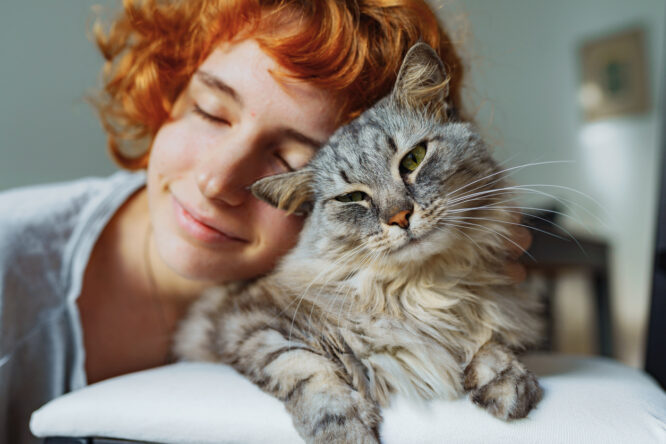Cats follow their own schedule, and we just have to put up with it.
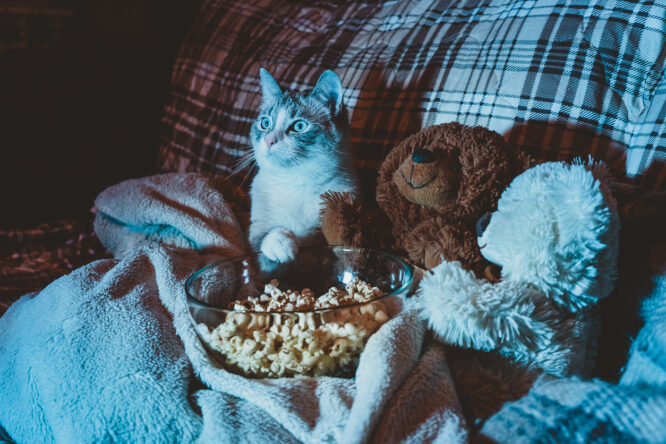
If you’ve ever been woken up by the sound of thunderous zoomies, random meowing at the ceiling, or a cat knocking your shampoo into the loo, congratulations—you’re living with a night gremlin disguised as a domestic pet. But why do cats go absolutely feral at 2 a.m., and how can you make it through the madness with your sanity intact? Here’s what’s going on (and what actually helps).
1. They’re wired to hunt at night.
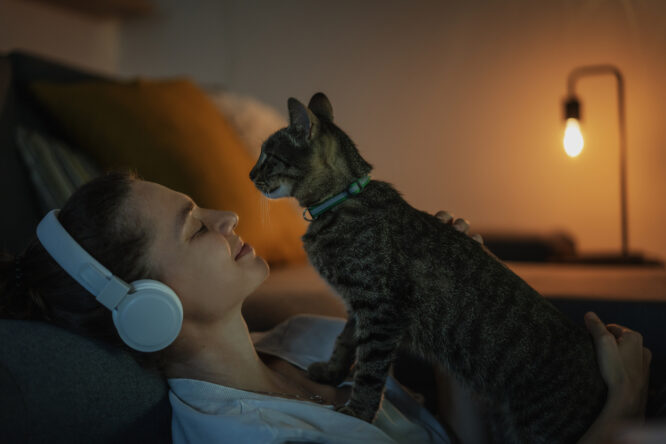
Cats might look like they’ve fully adapted to the indoor life of Dreamies and radiators, but deep down, they’re crepuscular—which means their most active hours are around dawn and dusk. So 2am might be prime hunting time in their mind, even if you’re just trying to sleep.
It’s not misbehaviour, it’s instinct. If they were in the wild, that would be the hour to chase small prey. In your house? That means chasing shadows, socks, or your toes under the duvet.
2. They probably slept all day.

If your cat’s spent the entire afternoon draped over the back of the sofa like an expensive scarf, that burst of energy at night makes total sense. They’ve recharged, and now they’re ready to go full Formula 1 mode in the middle of the night. One way to ease the chaos is to make sure your cat gets proper playtime during the day, especially in the early evening. Laser pointers, wand toys, or a good old cardboard box can help tire them out a bit before bed.
3. The house is quiet, and they love that.

When everyone else is asleep, the house becomes their personal kingdom. No noise, no distractions—just floor space and furniture to climb like a jungle gym. For cats, that quiet is energising. So, they take full advantage. It’s the perfect time for a mad dash across the hallway, random yowling, or a dramatic solo performance on the stairs like it’s a West End stage.
4. They might be bored.

Indoor cats especially can get cabin fever if their environment doesn’t offer enough stimulation. When they’re bored, they’ll make their own fun, and unfortunately, the dead of night seems to be the time of choice for their self-made adventure series. Try rotating toys, adding a perch by the window, or using puzzle feeders that make them work a bit for their food. Anything that engages their brain can help settle their midnight chaos streaks.
5. They want your attention.
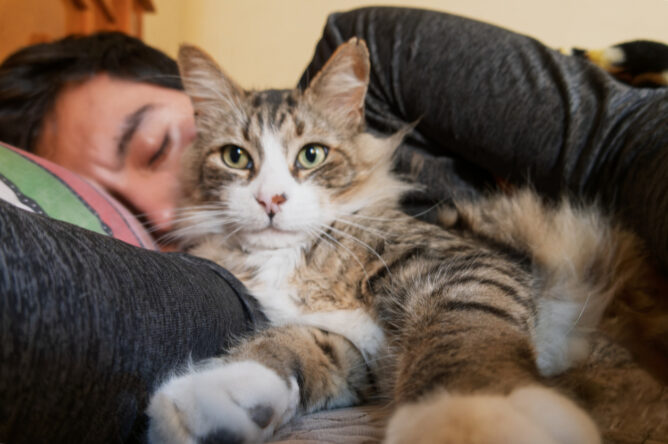
Some cats learn that the fastest way to get your attention is to wake you up. Whether it’s meowing in your face or knocking things off the bedside table, they know exactly how to make you move. Reacting, even negatively, can reinforce the behaviour. As hard as it is, staying consistent and not giving them what they want in that moment is key. They’re clever, and they’ll test your limits like a furry toddler.
6. They’re hungry (or think they are).

Nighttime zoomies often come with a side of food demands. Some cats associate the middle of the night with snack time and will meow, pace, or stage a protest until you get up and feed them. One solution is a timed feeder that dispenses a small portion of food during the night, so they get their fix without dragging you into it. It breaks the link between you and their 3 a.m. chicken dreams.
7. It could be stress.

Sudden changes in routine, a new pet, or even outside noise can stress a cat out—and that stress often comes out at night. It might look like hyperactivity, but underneath it could be anxiety. Try creating a calm, predictable environment and using things like pheromone diffusers or calming sprays. If their behaviour feels excessive or new, it’s always worth checking in with a vet too, just to rule out anything deeper.
8. They’ve just got the zoomies.
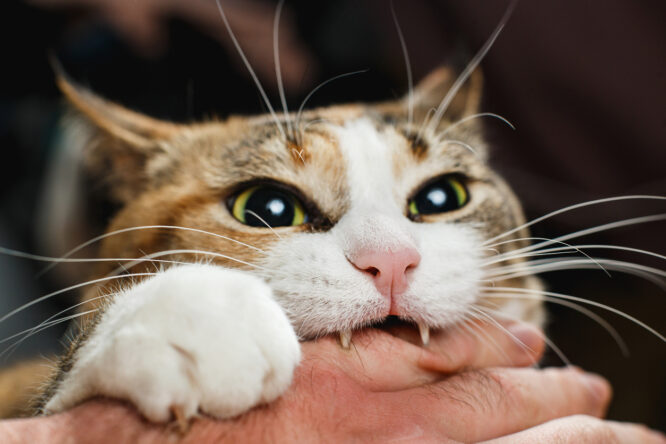
Sometimes there’s no deep explanation—they’ve just got the zoomies. One second they’re asleep on the radiator, the next they’re doing laps around the living room like they’ve had six espressos and a motivational speech. Zoomies are completely normal and usually nothing to worry about. Annoying in the middle of the night? Absolutely. However, often it’s just a quick burst, and they’ll crash out again in 10 minutes, looking smug and innocent.
9. Your sleep pattern might be encouraging them.
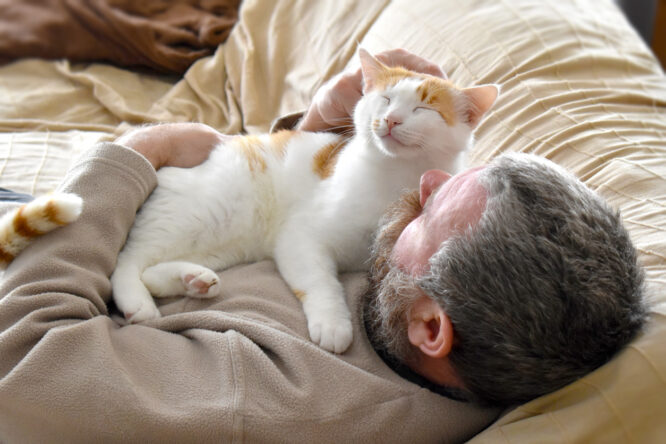
If you tend to get up and talk to them, feed them, or even just acknowledge them in the night, they’ll take that as a green light. Over time, they’ll start treating nighttime as the social hour. Try not to reward the behaviour with attention. Instead, establish a consistent bedtime routine where they get fed and played with, and then ignored. It sounds cold, but it helps reset the pattern.
10. How to survive it
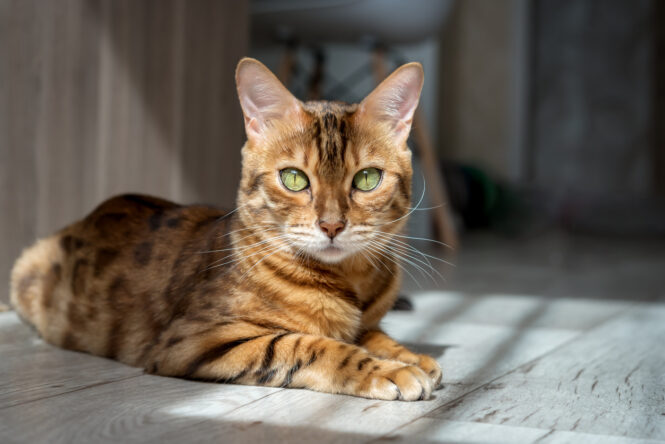
Earplugs. That’s step one. Step two? Accept that your cat’s not trying to be difficult—they’re just being… a cat. Building more stimulation into their day, setting a routine, and not reinforcing their antics will make a difference over time. In the meantime, maybe don’t leave breakables on your bedside table, and get used to waking up with a paw in your mouth. It’s all part of the nocturnal feline experience.


